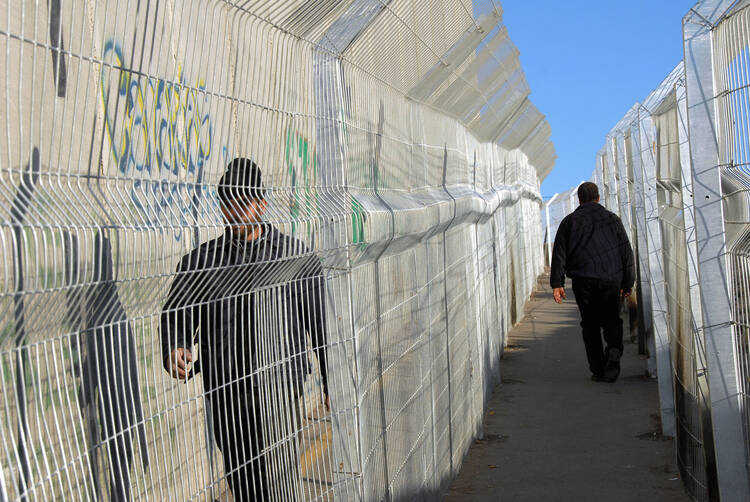U.S. bishops are objecting to Israel’s decision to build a separation barrier along a route that will nearly surround a convent and its primary school and confiscate most of their land on the outskirts of a Palestinian West Bank community. Bishop Richard E. Pates of Des Moines, Iowa, chairman of the U.S. Conference of Catholic Bishops’ Committee on International Justice and Peace, protested the Israeli plan to build the barrier near Beit Jalla in a letter dated May 6 to Secretary of State John Kerry. “In solidarity with our brother bishops in the Holy Land, we oppose rerouting the separation wall in the Cremisan Valley,” the letter said, referring to arguments that Holy Land bishops made to the Israeli government in a letter opposing the barrier. The barrier’s route would also cut off 58 Christian families from agricultural and recreational land they own, hurting their livelihood, Bishop Pates said. Bishop Pates urged Kerry to address the concerns raised by Jerusalem’s Latin Patriarch Fouad Twal, who reminded “Israeli decision-makers that the expropriation of lands does not serve the cause of peace.”
U.S. Bishops Protest Israel Barrier
Show Comments ()
1
Comments are automatically closed two weeks after an article's initial publication. See our comments policy for more.
Christopher Rushlau
12 years 2 months ago
Do the US Bishops think that the Jewish state in Palestine in general "serves the cause of peace" by discriminating against non-Jews (as a Jewish state must)?
The latest from america
A Reflection for Tuesday of the Eighteenth Week in Ordinary Time, by Molly Cahill
As emergency workers searched for survivors and tried to recuperate the bodies of the dead, Pope Leo XIV offered his prayers for people impacted by the latest shipwreck of a migrant boat off the coast of Yemen.
The Archdiocese of Miami celebrated the first Mass for detainees at “Alligator Alcatraz,” the Trump administration’s controversial immigrant detention center in the Florida Everglades.
Eight decades after the end of World War II, Father George Zabelka exists as a symbol of conscience, one who can communicate the message of Gospel nonviolence.








